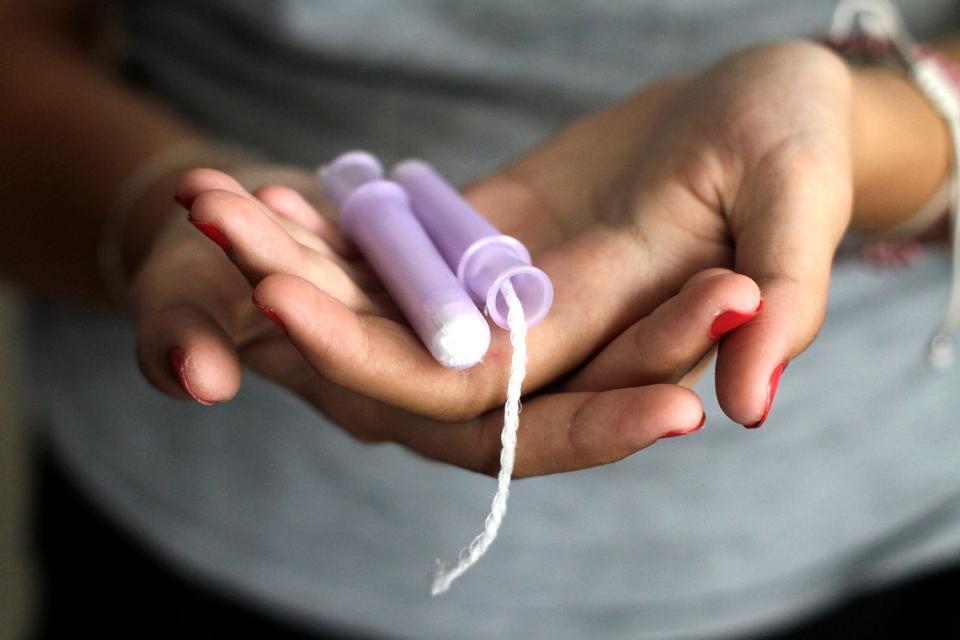Arsenic, Lead, 14 Other ‘Toxic Metals’ Found in Tampons, According to Study
A new study found “measurable concentrations" of 16 metals in brands of tampons available in the United States and abroad

Getty
Stock image of tampons in a woman's handsArsenic, lead, and more toxic metals have been found in multiple tampon brands, according to a new study.
Researchers looked at 18 product lines from 14 brands and found “concentrations of several toxic metals,” according to a study published in Environment International.
The study specifically looked for arsenic, barium, calcium, cadmium, cobalt, chromium, copper, iron, manganese, mercury, nickel, lead, selenium, strontium, vanadium and zinc — and found “measurable concentrations of all 16 metals assessed.”
“Lead concentrations were higher in non-organic tampons while arsenic was higher in organic tampons,” the study said, adding, “No category had consistently lower concentrations of all or most metals.”

Getty
Stock image of tampons.The study's findings are particularly concerning due to the unique biology of the vagina, which includes more "permeable" skin than other parts of the body. The researchers also pointed out that “vaginally absorbed chemicals do not undergo first-pass metabolism and detoxification via the liver” — and instead, “directly enter systemic circulation.”
Related: ‘Forever Chemicals’ Linked to Some Band-Aids and Adhesive Brands from Wal-Mart and CVS
The brands used in the study were not named, however, they were available to purchase in the U.S., U.K. and Greece. And as the study notes, “regulations in the US, EU, and UK protecting consumers from potential contaminants in tampons are nearly nonexistent, and none of these governments requires manufacturers to test their products for harmful chemicals, including metals.”
“We cannot yet say that people should not be using tampons. So far what we know is that metals are present in all the samples we tested. However, we do not know yet if metals leach out of the tampon and whether they are absorbed by the body. We therefore cannot yet assess to what extent [if any] metals in tampons contribute to any health problems," Jenni Shearston, lead author on the study and a postdoctoral scholar at the University of California Berkeley School of Public Health, told CBS MoneyWatch.
Never miss a story — sign up for PEOPLE's free daily newsletter to stay up-to-date on the best of what PEOPLE has to offer, from celebrity news to compelling human interest stories.
"Our research emphasizes the need for more testing of toxic compounds in products we use daily and better labeling so users can make more informed decisions."
The Food and Drug Administration told CBS MoneyWatch that it is reviewing the study's findings.
"While the chemical method used indicates these metals are present in the tampons tested in the laboratory, the study does not assess whether any metals are released from tampons when used in the body. It also does not address whether any metal, if released, can be absorbed into the vaginal lining or, subsequently into the bloodstream," a spokesperson for the agency stated. "We plan to evaluate the study closely and take any action warranted to safeguard the health of consumers who use these products."
For more People news, make sure to sign up for our newsletter!
Read the original article on People.


